If you’ve ever found yourself wrinkling your nose when your furry friend comes close, you’re not alone. A dog’s smell can range from mildly unpleasant to downright overpowering, leaving many pet owners wondering what’s behind the stench. While occasional odors are normal, persistent or unusual smells often indicate underlying issues that go beyond just being “a dog thing.”
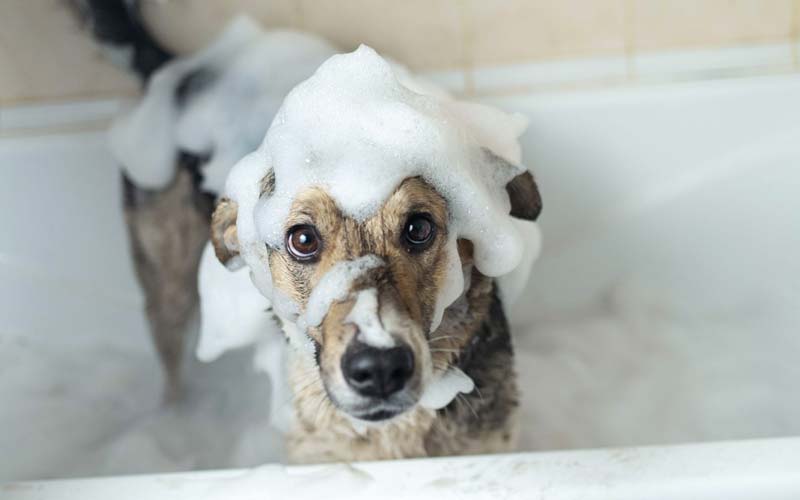
This article dives into the most common causes of canine odor, from hygiene lapses and behavioral quirks to potential medical concerns like infections or dietary imbalances. Along the way, we’ll provide actionable tips to help you keep your dog smelling fresh and discuss when it’s time to seek professional help. Whether you’re a new pet parent or a seasoned dog lover, understanding the sources of bad odors can improve both your dog’s comfort and your quality of life together. Let’s uncover why your dog might stink—and what you can do about it.
1. Common Causes of Dog Odor
When your dog starts to emit an unpleasant smell, the root cause can often be traced to a variety of factors ranging from hygiene to health concerns. Understanding these issues can help address the problem effectively. Below are the most common causes of dog odor:
A. Poor Grooming Habits
Regular grooming is essential to maintaining your dog’s hygiene. Bathing and brushing help remove dirt, debris, and excess oils that accumulate in the coat, preventing odors from developing.
Importance of Bathing
Bathing your dog every 4–6 weeks (depending on breed and activity level) keeps their coat clean and odor-free. Overbathing, however, can strip natural oils, leading to dry skin and potential odor issues. Always use dog-safe shampoos to maintain their skin and coat health.
Role of Brushing
Brushing removes loose fur, reduces shedding, and prevents mats from forming. Mats can trap dirt, bacteria, and moisture, creating the perfect environment for foul odors. A good grooming routine helps keep your dog fresh and reduces the risk of skin infections.
B. Rolling in Stinky Substances
Dogs are instinctively drawn to strong-smelling materials like poop, dead animals, or garbage. This behavior, known as “scent rolling,” is thought to be a way for dogs to mask their scent or communicate with other animals.
Impact on Coat Hygiene
Rolling in stinky substances not only coats your dog’s fur with offensive odors but also introduces bacteria and debris that can lead to infections. If your dog engages in this behavior frequently, training commands like “leave it” or redirecting their attention can help minimize the issue.
C. Medical Conditions
1. Anal Gland Issues
Dogs have anal glands that release a strong-smelling fluid during bowel movements. If these glands become impacted or infected, they can emit a fishy or foul odor. Signs of anal gland problems include scooting, licking the rear area, and discomfort. A vet can express the glands or treat infections as needed.
2. Skin Infections and Allergies
Yeast, bacterial, or fungal infections are common culprits behind musty or sour smells in dogs. Allergies can exacerbate these conditions by causing excessive licking, scratching, or irritation, altering the skin’s natural pH balance. Regular grooming and vet-prescribed treatments can alleviate these issues.
3. Dental Problems
Bad breath in dogs often stems from poor dental hygiene. Plaque and tartar buildup can lead to gum disease and infections, producing a foul smell. Brushing your dog’s teeth regularly and using dental chews or professional cleanings can prevent these problems.
4. Ear Infections
Dogs with floppy ears or those prone to water exposure may develop ear infections caused by bacteria or yeast. This results in a strong, unpleasant smell accompanied by redness, itching, or discharge. Routine ear cleaning can help prevent infections, but consult a vet if you notice persistent symptoms.
5. Gastrointestinal Issues
Excessive gas or unusual body odors may result from dietary imbalances or medical problems like food intolerances. Switching to a high-quality diet and consulting with a vet can address these issues.
6. Underlying Health Conditions
Certain diseases, such as diabetes, kidney issues, or cancer, can produce unusual smells in dogs. These conditions often come with other symptoms like weight loss, lethargy, or changes in appetite. If you suspect a systemic health problem, seek veterinary advice promptly.
Addressing the root cause of your dog’s odor, whether through improved grooming, dietary adjustments, or medical intervention, is key to restoring their fresh and healthy state.
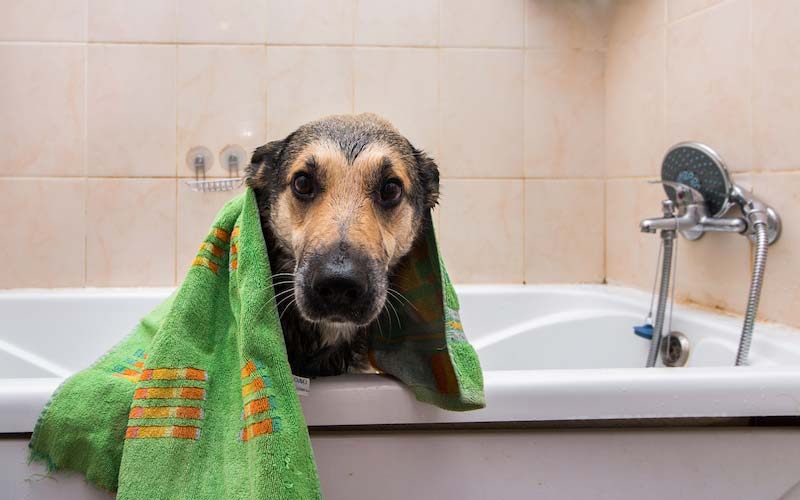
2. Effective Solutions for Dog Odor
Dog odors can be effectively managed and often prevented with a combination of regular care, proper nutrition, and timely veterinary attention. Below are practical solutions to address and reduce unwanted smells in your canine companion.
A. Regular Grooming and Maintenance
Bathing Best Practices
Bathing your dog regularly with a vet-recommended, dog-safe shampoo is crucial. Depending on your dog’s breed and activity level, aim for a bath every 4–6 weeks. For dogs with sensitive skin, use hypoallergenic or medicated shampoos to avoid irritation. Ensure thorough rinsing and drying, as leftover shampoo or moisture can lead to skin infections and odors.
Brushing to Remove Debris
Daily or weekly brushing helps remove dead fur, dander, and dirt trapped in your dog’s coat. It also prevents matting, which can harbor bacteria and unpleasant smells. Use a brush suitable for your dog’s coat type (slicker brushes for long-haired breeds or rubber brushes for short-haired dogs) for best results.
Ear Cleaning
Regular ear checks and cleaning prevent infections that cause foul odors. Use a vet-approved ear-cleaning solution and a soft cloth or cotton pad. Avoid inserting anything deep into the ear canal. For breeds with floppy ears, increase the frequency of checks as they are more prone to infections.
B. Diet and Nutrition Adjustments
Balanced Diet for Coat Health
A high-quality, nutritionally balanced diet can significantly reduce body odor by improving overall health and skin condition. Look for foods rich in essential fatty acids, vitamins, and proteins.
Role of Omega-3 Fatty Acids and Probiotics
Omega-3 fatty acids, found in fish oil supplements, promote a healthy coat and reduce skin inflammation, which can decrease odor. Probiotics support gut health, minimizing gastrointestinal issues and flatulence.
C. Dental Care
Regular Brushing
Bad breath in dogs is often linked to dental health. Brush your dog’s teeth 2–3 times per week using dog-safe toothpaste and a soft-bristled toothbrush. Starting this routine early makes it easier to maintain over time.
Dental Treats and Chews
In addition to brushing, offer dental treats or chews designed to reduce plaque and freshen breath. These can supplement oral hygiene efforts but should not replace regular brushing.
D. Veterinary Checkups
When to Consult a Vet
If your dog’s odor persists despite good grooming and dietary practices, consult a veterinarian. Persistent smells could signal underlying health issues such as skin infections, anal gland problems, or systemic diseases.
Diagnostic Approaches
Vets may perform diagnostic tests like skin scrapings, bloodwork, or imaging to identify the cause of the odor. Early intervention ensures your dog receives appropriate treatment, whether for allergies, infections, or other conditions.
By incorporating these solutions into your care routine, you can manage and prevent unpleasant odors, ensuring your dog stays happy, healthy, and smelling fresh.
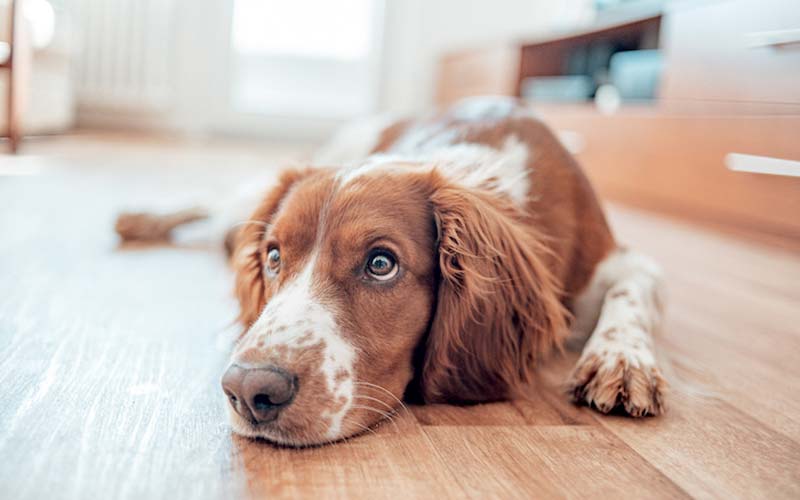
3. Prevention Tips for Dog Odor
Preventing unpleasant smells before they arise is key to keeping your dog fresh and your home odor-free. By implementing a few proactive measures, you can minimize the chances of odor buildup. Here’s how:
1. Wash Bedding and Toys Regularly
Your dog’s bedding, blankets, and plush toys can trap odors, bacteria, and dirt over time. Wash these items in hot water with pet-safe detergent at least once every 1–2 weeks. For items that cannot be machine-washed, spot-clean them and ensure they are thoroughly dried to prevent mold or mildew.
2. Train Dogs to Avoid Rolling in Unpleasant Substances
Dogs often roll in smelly materials like dead animals or feces due to instinctual behavior. Training commands such as “leave it” or “come” can help redirect their attention and prevent this habit. Positive reinforcement, such as rewarding them when they ignore such temptations, can reinforce good behavior.
3. Maintain a Consistent Grooming Routine
Establish a regular grooming schedule to keep your dog clean and fresh:
- Bathing: Bathe your dog every 4–6 weeks or as needed with a mild, dog-safe shampoo.
- Brushing: Brush their coat daily or weekly to remove dirt, dander, and loose fur.
- Ear Cleaning: Check and clean ears weekly, especially for floppy-eared breeds prone to infections.
- Nail Trimming: Overgrown nails can trap dirt and odors; trim them regularly to maintain hygiene.
By combining regular washing, proper training, and consistent grooming, you can effectively prevent unpleasant odors and maintain a happy, clean, and healthy dog.
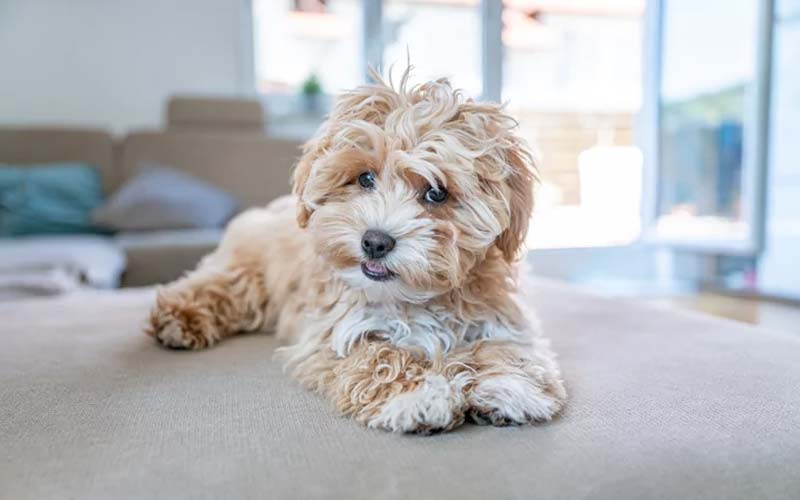
4. When to Seek Professional Help for Dog Odor
While regular grooming and at-home care can address most dog odor issues, some smells may signal serious underlying problems that require professional attention. Here’s how to recognize when it’s time to seek help and the benefits of consulting a veterinarian or professional groomer.
1. Signs That Indicate a Serious Medical Issue
Certain odors or accompanying symptoms may suggest a medical condition that needs immediate intervention:
- Persistent or Unusual Smells: If your dog’s odor does not improve with regular grooming or worsens over time, this could point to an underlying issue like a skin infection, dental disease, or anal gland problem.
- Visible Signs of Discomfort: Symptoms such as excessive licking, scratching, redness, or swelling may indicate skin conditions or allergies that require treatment.
- Foul Breath: Persistent bad breath could be a sign of advanced dental disease, gastrointestinal issues, or systemic illnesses like kidney disease.
- Discharge or Lesions: Oozing wounds, ear discharge, or unusual skin lesions are red flags that warrant a veterinary evaluation.
Early detection and treatment can prevent more serious complications, improving your dog’s overall health and well-being.
2. Benefits of Professional Grooming or Veterinary Consultations
Seeking professional help ensures that your dog receives expert care tailored to their specific needs:
- Veterinary Expertise: Vets can perform diagnostic tests to uncover the root cause of odors. This includes checking for infections, allergies, or systemic conditions. They can also prescribe medicated shampoos, antibiotics, or dietary changes as needed.
- Professional Grooming Services: Groomers are skilled in managing more challenging grooming tasks, such as dealing with thick mats, cleaning hard-to-reach areas, or addressing sensitive skin. Many also offer treatments like deep conditioning or de-shedding services to enhance coat health and freshness.
By recognizing the signs of serious health issues and taking advantage of professional resources, you can ensure your dog remains comfortable, healthy, and odor-free. Early intervention and expert care are invaluable in maintaining your furry friend’s overall quality of life.
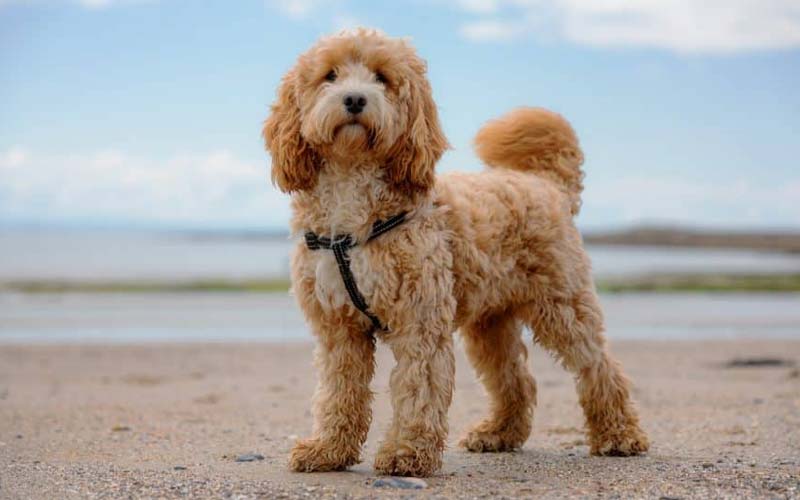
5. When to Seek Professional Help for Dog Odor
While most cases of dog odor can be addressed through routine grooming and at-home care, there are times when persistent smells may indicate a serious health issue. Understanding when to seek professional help is essential for your dog’s well-being. Here’s how to identify red flags and understand the benefits of professional grooming or veterinary care.
1. Signs That Indicate a Serious Medical Issue
Certain odors or symptoms in your dog can signal that something more than poor hygiene is at play. If your dog experiences any of the following, it may be time to seek veterinary attention:
- Persistent or Unusual Smells: If your dog’s odor persists despite regular grooming, or if it changes dramatically (for example, a sweet or fruity odor, which can be a sign of diabetes), it could be a symptom of an underlying medical condition. Unpleasant smells from the ears, mouth, or skin often indicate infections or diseases.
- Visible Discomfort or Irritation: If your dog is excessively licking, scratching, or showing signs of discomfort in specific areas, it may point to skin infections, allergies, or conditions like hot spots, yeast infections, or flea infestations that require treatment. Skin issues can sometimes cause foul odors, which might not resolve with home grooming.
- Foul Breath: Halitosis (bad breath) in dogs is often caused by dental disease, but it could also indicate issues with the digestive system or internal organs, such as kidney disease or gastrointestinal problems. Bad breath that doesn’t improve with regular brushing and dental care may require a professional evaluation.
- Ear Discharge or Odor: Dogs prone to ear infections, particularly breeds with floppy ears, may develop strong odors if bacteria or yeast are present. This can be accompanied by a yellow, brown, or black discharge from the ears, which requires prompt medical attention to prevent further complications.
- Abnormal Discharge or Lesions: Discharge from the eyes, ears, or nose, or the appearance of new lumps, bumps, or skin lesions can be signs of infection, tumors, or other health problems. Any new or unusual discharge should be investigated by a veterinarian.
Seeking timely veterinary attention for these symptoms ensures that your dog receives proper diagnosis and treatment, preventing the issue from becoming more serious.
2. Benefits of Professional Grooming or Veterinary Consultations
While regular home grooming is important, professional care can provide several benefits, especially if you notice persistent or unusual odors. Here’s how professionals can help:
- Veterinary Expertise: Veterinarians have the knowledge and tools to diagnose the underlying causes of unusual odors. Whether it’s a skin infection, gastrointestinal issue, or a systemic illness such as diabetes or kidney disease, a vet can provide targeted treatments, including medications, special diets, or more advanced diagnostics like blood tests or imaging. Early detection of conditions such as dental disease or anal gland issues can prevent further complications.
- Professional Grooming Services: Professional groomers can manage more difficult grooming tasks, such as dealing with thick mats, cleaning ears, or addressing skin sensitivities. They also offer specialized treatments like flea dips, medicated shampoos, and de-shedding services to maintain coat health and reduce odors. Groomers can often spot signs of infection or injury that may go unnoticed in daily care.
- Dental Care: If your dog’s bad breath persists despite regular brushing, a professional dental cleaning may be necessary. This can remove plaque and tartar buildup that can’t be addressed with at-home brushing. Dental cleanings performed by a veterinarian are crucial for preventing gum disease, tooth loss, and the foul odors associated with oral infections.
- Comprehensive Care: If your dog has recurring health issues leading to odor, such as gastrointestinal problems or chronic skin conditions, ongoing professional care and follow-ups are important to manage the issue and improve your dog’s overall quality of life.
By recognizing the signs that require professional help and taking action early, you can ensure that your dog remains healthy, comfortable, and free of persistent odors. Whether it’s a routine vet checkup, dental care, or professional grooming, seeking expert assistance when needed ensures that your dog receives the best possible care.
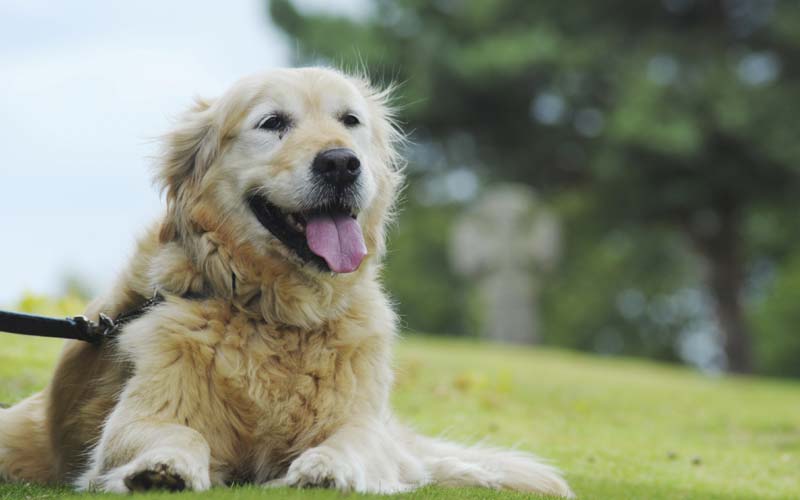
Conclusion
In conclusion, understanding why your dog might stink is essential for both your dog’s health and your home’s cleanliness. From poor grooming habits and natural behaviors like rolling in stinky substances to more serious medical conditions like skin infections, dental problems, or gastrointestinal issues, there are numerous factors that can contribute to unpleasant odors.
Fortunately, many of these issues can be addressed through regular grooming, a balanced diet, and good dental care. Establishing a consistent routine of bathing, brushing, and cleaning will go a long way in keeping your dog fresh and healthy. However, if you notice persistent or unusual smells, it’s crucial to seek professional help to rule out any underlying health conditions, from infections to more serious systemic issues.
By staying proactive about your dog’s hygiene and seeking veterinary care when needed, you can ensure your dog remains comfortable and odor-free. Keep a close eye on your dog’s behavior and health, and don’t hesitate to take action if something feels off. The earlier you address potential issues, the easier they are to manage, ensuring a happy, healthy pet.
So, take charge of your dog’s care today—regular grooming, proper nutrition, and routine vet checkups will help keep your furry friend smelling great and feeling their best!